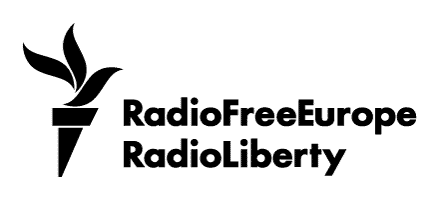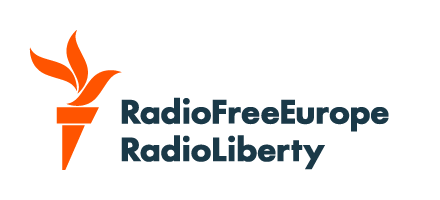RFE/RL: Can you explain what happened to the Belarus Service's website?
Alyaksandr Lukashuk: On Saturday, April 26, we were preparing special intense coverage of mass protests in Minsk dedicated to the anniversary of the Chornobyl disaster. Several thousand people were gathering in Minsk and usually we cover them online as we are off-air at this time. At the moment when the march was to begin, 2 p.m. local time, all of the sudden we noticed that we could not operate normally on our website. It became slower and slower and literally within a couple of minutes we lost the site.
RFE/RL: How did you react? How were you able to get the news out to your audience?
Lukashuk: There was not much we could do because at this moment we also lost e-mail communication and Skype communication with Belarus. As we found out later, the attack was so massive that the firewall that protects Radio Free Europe went down. And a number of other [RFE/RL] sites went down as well.
So we went back to our old methods, calling our correspondents over the phone, taking their messages, recording them here, and making [shortwave] radio programs. And as for the radio program, we were able to put it together as it should have been, and it went on the air ok.
RFE/RL: Since you have been off the air for so long, how did you get the word out for people to tune in to their shortwave radios again?
Lukashuk: That was a problem. That is why we used other friendly sites to advertise our radio programming.
RFE/RL: And what about the website?
Lukashuk: As for the website, we regained out ability to receive materials from Belarus via e-mail in a couple of hours. We received dozens of excellent photos from the march, we received 15 video clips, and we posted them. The only unfortunate thing is that we were the only ones, as it turns out, that could see this material.
RFE/RL: So how were you able to get that material out?
Lukashuk: The attack continued for two days and for two days we were announcing on air to our listeners. [In the past] we would say [on the radio that] you can go for more details to our website. But now we were telling people who usually go to the website to tune in to the radio. We started to alert our friends.
There is a group of supporters in Belarus called the Friends of Liberty who are active on LiveJournal, who have their own chatrooms, which is called "circle of friends of Radio Liberty." They started to send out the news that we are not accessible. We gave them our publications, our articles, and they started to send them out over the weekend. But the major event happened on Monday [April 28].
RFE/RL: What happened then?
Lukashuk: This morning [April 28] when we came to the office, we decided to issue an appeal to the independent media and Internet community in Belarus asking them for solidarity. More than 30 organizations that have their own sites responded positively and began to take our material that was posted on LiveJournal and publish it on their websites as their top story. Among them is the site of European Radio for Belarus, the site of Charter 97, the site of the independent trade union organization Solidarity. These are quite popular sites and they now deliver our coverage as their top story.
RFE/RL: It isn't a new thing for RFE/RL to be attacked. What other attempts have there been to silence RFE/RL and how did you deal with those and how does it compare to this situation?
Lukashuk: In terms of the Internet, our site is 10 years old. This is the worst attack that has ever happened on the Belarus site and, as far as I know, on RFE/RL in general.
As far as the bigger historical picture, yes, there were decades of jamming and our audience had a hard time looking for the RFE/RL signal on different shortwave frequencies. That was the reason why the same program was broadcast on three, four, sometimes five different frequencies simultaneously to make it more difficult for jamming. So there is some history to this kind of thing.
RFE/RL: In terms of effect, is there a difference between a cyberattack and old-style jamming?
Lukashuk: The new aspect to this is that during the old times, when the authorities in the totalitarian countries jammed RFE/RL, they jammed only the signal from the broadcaster. But nowadays, the Internet is an interactive tool. By jamming our Internet publication, those who do it also jam the voices of hundreds of people who participate in the online discussions, who send their comments, questions, photos, and videos to us. Now they are also deprived of this. So in a way, this was a more harmful attack.
RFE/RL: Do you see anything positive coming out of this experience?
Lukashuk: What we see now is the first attempt in the Belarusian Internet community to act in solidarity to an attack on press freedom. And it may be the most valuable -- and unexpected -- result of this attack.
Alyaksandr Lukashuk: On Saturday, April 26, we were preparing special intense coverage of mass protests in Minsk dedicated to the anniversary of the Chornobyl disaster. Several thousand people were gathering in Minsk and usually we cover them online as we are off-air at this time. At the moment when the march was to begin, 2 p.m. local time, all of the sudden we noticed that we could not operate normally on our website. It became slower and slower and literally within a couple of minutes we lost the site.
RFE/RL: How did you react? How were you able to get the news out to your audience?
Lukashuk: There was not much we could do because at this moment we also lost e-mail communication and Skype communication with Belarus. As we found out later, the attack was so massive that the firewall that protects Radio Free Europe went down. And a number of other [RFE/RL] sites went down as well.
So we went back to our old methods, calling our correspondents over the phone, taking their messages, recording them here, and making [shortwave] radio programs. And as for the radio program, we were able to put it together as it should have been, and it went on the air ok.
RFE/RL: Since you have been off the air for so long, how did you get the word out for people to tune in to their shortwave radios again?
Lukashuk: That was a problem. That is why we used other friendly sites to advertise our radio programming.
RFE/RL: And what about the website?
Lukashuk: As for the website, we regained out ability to receive materials from Belarus via e-mail in a couple of hours. We received dozens of excellent photos from the march, we received 15 video clips, and we posted them. The only unfortunate thing is that we were the only ones, as it turns out, that could see this material.
RFE/RL: So how were you able to get that material out?
Lukashuk: The attack continued for two days and for two days we were announcing on air to our listeners. [In the past] we would say [on the radio that] you can go for more details to our website. But now we were telling people who usually go to the website to tune in to the radio. We started to alert our friends.
There is a group of supporters in Belarus called the Friends of Liberty who are active on LiveJournal, who have their own chatrooms, which is called "circle of friends of Radio Liberty." They started to send out the news that we are not accessible. We gave them our publications, our articles, and they started to send them out over the weekend. But the major event happened on Monday [April 28].
RFE/RL: What happened then?
Lukashuk: This morning [April 28] when we came to the office, we decided to issue an appeal to the independent media and Internet community in Belarus asking them for solidarity. More than 30 organizations that have their own sites responded positively and began to take our material that was posted on LiveJournal and publish it on their websites as their top story. Among them is the site of European Radio for Belarus, the site of Charter 97, the site of the independent trade union organization Solidarity. These are quite popular sites and they now deliver our coverage as their top story.
RFE/RL: It isn't a new thing for RFE/RL to be attacked. What other attempts have there been to silence RFE/RL and how did you deal with those and how does it compare to this situation?
Lukashuk: In terms of the Internet, our site is 10 years old. This is the worst attack that has ever happened on the Belarus site and, as far as I know, on RFE/RL in general.
As far as the bigger historical picture, yes, there were decades of jamming and our audience had a hard time looking for the RFE/RL signal on different shortwave frequencies. That was the reason why the same program was broadcast on three, four, sometimes five different frequencies simultaneously to make it more difficult for jamming. So there is some history to this kind of thing.
RFE/RL: In terms of effect, is there a difference between a cyberattack and old-style jamming?
Lukashuk: The new aspect to this is that during the old times, when the authorities in the totalitarian countries jammed RFE/RL, they jammed only the signal from the broadcaster. But nowadays, the Internet is an interactive tool. By jamming our Internet publication, those who do it also jam the voices of hundreds of people who participate in the online discussions, who send their comments, questions, photos, and videos to us. Now they are also deprived of this. So in a way, this was a more harmful attack.
RFE/RL: Do you see anything positive coming out of this experience?
Lukashuk: What we see now is the first attempt in the Belarusian Internet community to act in solidarity to an attack on press freedom. And it may be the most valuable -- and unexpected -- result of this attack.




